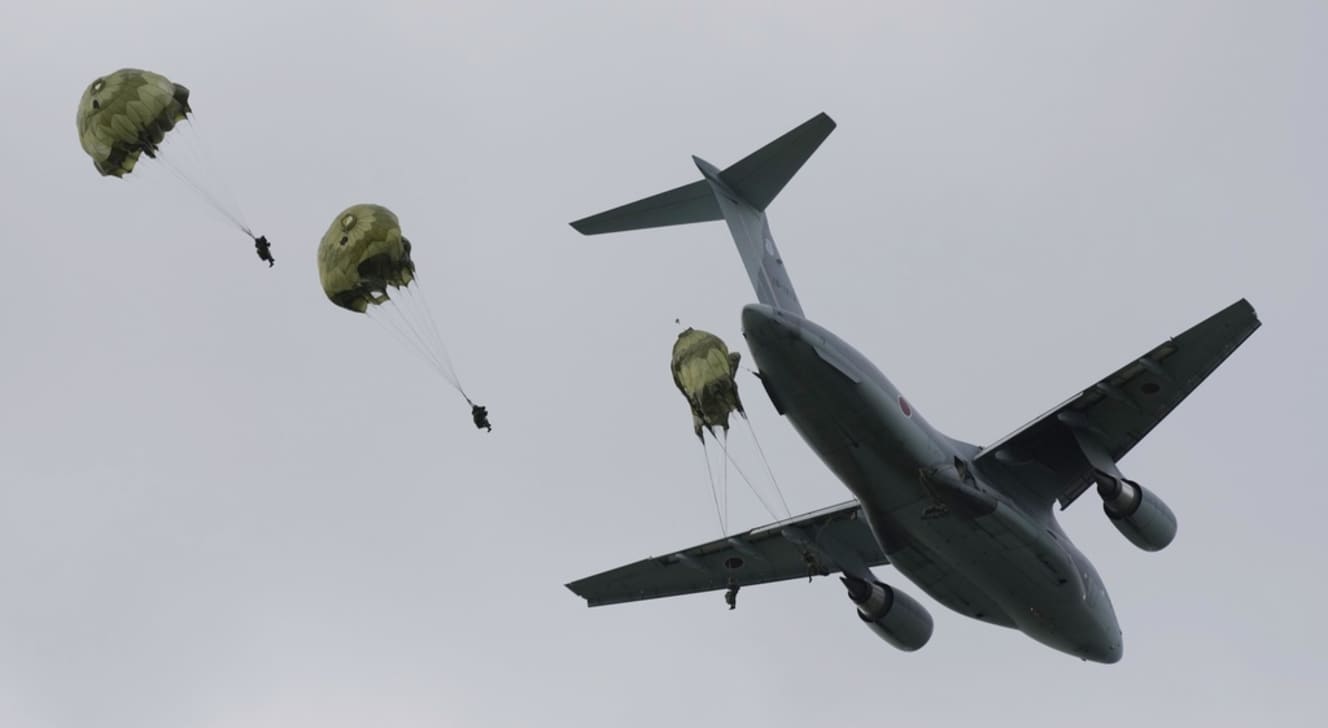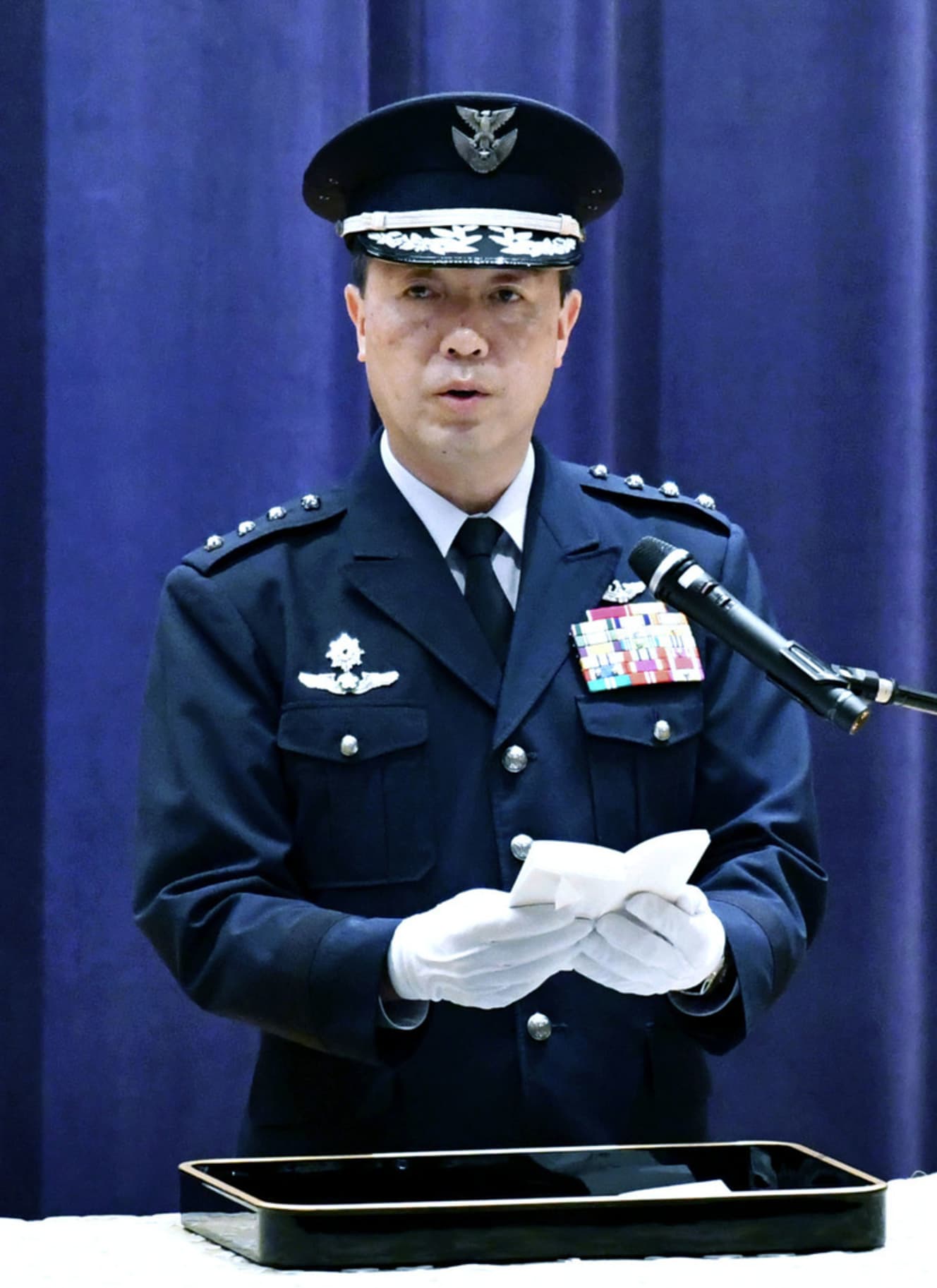Japan Air Self-Defense Force Top Admits Exam Irregularities in Senior Officer Promotion Exams
Re-examination to be held in late June!

An internal investigation uncovered irregularities in the first round of the “Command and Staff Course Student Selection Examination (CS Examination)” to become a high-ranking Air Self-Defense Force officer (senior commander and staff officer). A source familiar with the situation revealed, “There were irregularities in the examination.
The exam has been rigged, and preparations are being made for a re-test. The irregularities are not on the level of cheating by the examinees, but rather a leakage of the examination questions.
To become a senior commander or a staff officer, one must be educated in the command and staff course cadre process. The selection examination (CS examination) is held every year in March. Only after passing the CS examination can one become a senior commander. Those who pass the CS exam generally attain the rank of general, assistant general, or colonel. This is the gateway to the highest executive rank in the Air Self-Defense Force. An SDF alumnus said, “Those who aspire to become doctors are not doctors.
If you want to become a doctor, you have to pass the national medical examination, but it is just as important to pass the CS exam, because it gives you the power to command and order as a senior officer in the SDF.
Although the Air Self-Defense Force (ASDF) is the one that has been in trouble over the leak of examination questions, the Ground Self-Defense Force (GSDF) and Maritime Self-Defense Force (MSDF) also have high-level officer selection examinations equivalent to the CS examinations. One of the people who has created the key exam questions for the GSDF reveals, “The exam questions are not for the GSDF, but for the Air Self-Defense Force.
The exam questions are given in a canned condition, staying for several days in various secluded accommodations away from the JSDF. Not only the questions but also the model answers are made without a single doubt based on the instructional manuals and training materials. After the questions and answers are prepared, they are kept in a locked vault. Only those members who have keys to the vault are allowed to see the questions until the day of the examination.
Presumably, the Air Self-Defense Force had similar strict controls in place. How could they have been leaked to the outside world, then? We will have to wait for the results of further investigations, but if there was money exchanged there, it would not be enough to violate the confidentiality obligations of the Self-Defense Forces Law and the National Public Service Law. There is a strong possibility that both the member who leaked the information and the member who requested it will be subject to disciplinary dismissal and even criminal prosecution. A senior SDF official commented, “The Air Self-Defense Force is not a self-cleansing organization.
The Air Self-Defense Force has too little self-cleansing power,” said a senior Self-Defense Force official. Compared to the Ground Self-Defense Force and the Maritime Self-Defense Force, the Air Self-Defense Force protects its elites too much. For example, last August, a 50-something Air Self-Defense Force general was disciplined for power harassment against several subordinates, but the punishment was a four-day suspension. Although that was the only incident that was considered a problem, it is a problem that should have been punished with a demotion of at least one rank, as was the case with a first lieutenant colonel of the Japan Ground Self-Defense Force who was also found to have engaged in power harassment in February of this year. We have heard of several other cases besides the one uncovered, but they are not seen as a problem. I can’t do this.

In late April, a “violation of the Act on the Protection of Specified Secrets” was just uncovered.
On April 26, five officers of the Ground and Maritime Self-Defense Forces were disciplined by suspension or reduction in pay for “passing on specified secret information to Self-Defense Force personnel who should not have known about it. The two cases in question occurred in 2010. In the Land Self-Defense Force, specified secrets related to contingency operations were passed on to the members. In addition, the Maritime Self-Defense Force entrusted one of its personnel, who had not undergone proper evaluation for handling specified secret information, with handling of the information.
Specified secret information” is “information that, if leaked, would seriously impede national security. Those who can handle such secrets are strictly controlled. Even though it was internal, the specified secret was leaked to several members of the team with ease. The fact that highly confidential information is leaked to people who may or may not be fit to handle the secrets is in itself frightening.
These two violations of the Specified Secret Protection Law are major crimes that cannot be forgiven in terms of Japan’s defense secrets. Senior SDF officers who handle security secrets are supposed to be persons who have been evaluated as suitable in background checks. However, the SDF officers who were deemed suitable for the job were found to have violated the Specified Secrets Protection Law. This is an extremely serious offense, and it exposes the fact that discipline is so disorganized that even the principle of “protecting classified information” cannot be observed.
In February, during the current session of the Diet, the Security Clearance Law was passed. This is another law to protect information that, if leaked, could hinder Japan’s national security by designating it as “critical economic security. The law limits access to this information to only those whose reliability has been confirmed by the government, including not only public officials but also private sector employees. If a leak of critical information is found, the person may be imprisoned for up to five years and fined up to 5 million yen, and if an employee of a private company, the company he or she works for may also be fined. If you are an employee of a private company, the company you work for may also be fined.
We cannot entrust our national security to anyone who is not capable of following the rules, even if he or she is loaded with money or in a honey trap. The leak of the examination questions came just as a law was being enacted to ensure that personnel who hold secrets related to Japan’s national security and the command and control authority over that security must be strictly selected.
A spokesman for the Ministry of Defense’s Air Self-Defense Force acknowledged that there had been irregularities , saying, “It is true that we had to conduct a reexamination. Furthermore, Hiroaki Uchikura, Chief of the Air Staff, commented through the public relations officer, “The soundness of the first round of examinations has been compromised.
Although the details of how the soundness of the first examination was compromised are still under investigation, there is a possibility that some of the examination questions were not properly administered, and it is regrettable that we have had to retest the first examination. We will strictly administer the reexamination and ensure fair and appropriate student selection.
The school is now making arrangements for the reexamination to be held in late June.
When the violation of the Act on the Protection of Specified Secrets was revealed on April 26, Defense Minister Kihara stated with a stern face, “We are taking this extremely seriously,” but if further allegations of irregularities that require a re-test come to light, the public will only become more concerned about whether the SDF personnel can really protect Japan.
◆The number of SDF personnel by rank, monthly salary, and retirement age (excerpts from the Ministry of Defense Self-Defense Forces in Numbers, FY1999)

PHOTO: Kyodo News (1st and 2nd pictures)